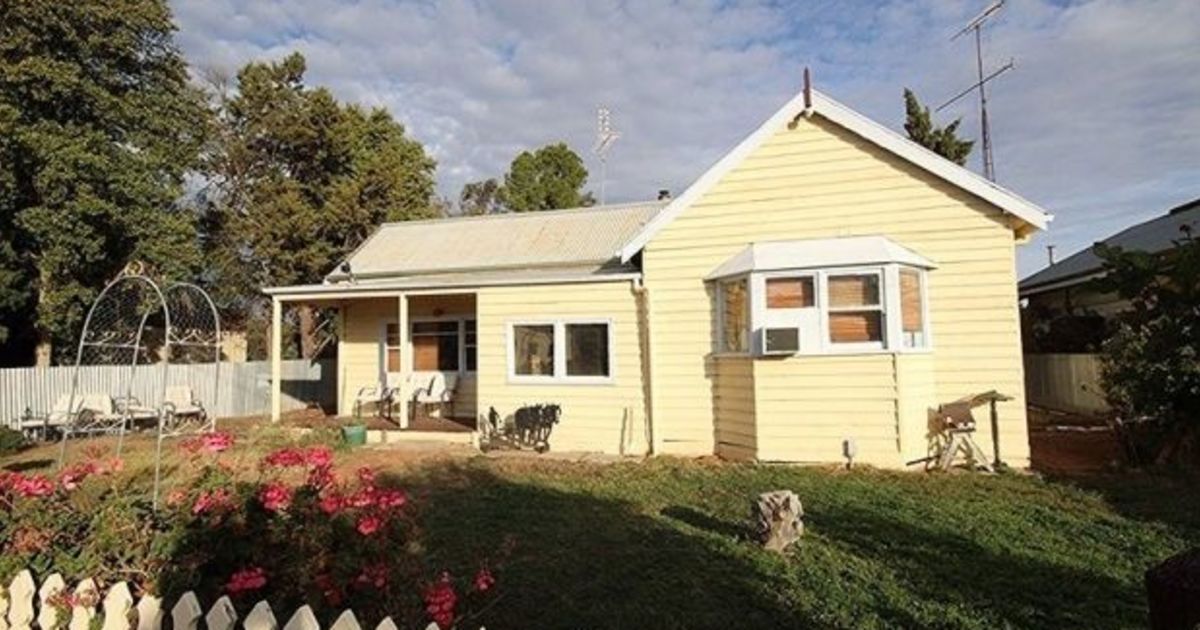Houses For Sale Under $100000 – Similarly, gently used clothing from high-end brands can be found for a fraction of their original retail price. For many, purchasing second-hand goods is not only a practical and affordable choice but also an environmentally conscious one. In conclusion, quality goods for sale represent the best that craftsmanship, design, and functionality have to offer. The concept of quality, however, is not a one-size-fits-all. The growing appeal of second-hand goods is also tied to a growing awareness of environmental issues. In this sense, quality is not just about prestige; it’s about making thoughtful choices that contribute to a more sustainable and rewarding lifestyle. Used bookstores, both physical and online, offer an extensive selection of pre-owned books, from contemporary novels to classic literature. This has opened up new possibilities for people to find exactly what they’re looking for, whether it’s a specific brand of furniture or a limited edition item that was once sold out. One of the primary reasons people turn to second-hand goods for sale is financial. This can be particularly advantageous for entrepreneurs who might have experience in business operations but lack the time or resources to build a new venture from the ground up. This ensures that the product is fully functional and free of defects, providing peace of mind for buyers. Thrift stores often carry a wide variety of goods, from clothing and accessories to furniture, books, and electronics, and each item comes with its own story. Economic downturns, for example, can influence the types of businesses that are put up for sale, as struggling companies may look to exit the market. A high-quality winter coat, for example, will keep you warm and dry through years of cold weather, offering comfort and protection that a cheaper, mass-produced coat cannot match. For sellers, online platforms provide a global marketplace, allowing them to reach a wider audience than they would through traditional brick-and-mortar stores. The role of business brokers and intermediaries has become increasingly important in today’s business-for-sale market. For buyers, the process typically starts with identifying a business that aligns with their interests, skills, and goals. Additionally, second-hand furniture allows buyers to find unique items that may not be available in traditional furniture stores. This desire for items with character and a story behind them has contributed to the growing appeal of second-hand goods. Many online platforms also allow buyers and sellers to leave feedback and reviews, helping to build trust and credibility in the transaction.

10 spots you can find houses for sale in Alberta for under 100,000
Video & 3d tours of homesshare favorite listingsprice historysee crime & noise scores

Under 100,000 The towns where you’ll find Australia’s cheapest houses
Video & 3d tours of homesshare favorite listingsprice historysee crime & noise scores

Homes For Sale Under 100,000 Cheap Real Estate Listings
Video & 3d tours of homesshare favorite listingsprice historysee crime & noise scores

Homes Under 100,000 in Maryland For Sale
Video & 3d tours of homesshare favorite listingsprice historysee crime & noise scores

Ranch Under 100,000 in Delaware For Sale
Video & 3d tours of homesshare favorite listingsprice historysee crime & noise scores

Single Family Home Under 100,000 in Delaware For Sale
Video & 3d tours of homesshare favorite listingsprice historysee crime & noise scores

Caribbean Homes for Sale under 100,000 Caribbean Escape Realty
Video & 3d tours of homesshare favorite listingsprice historysee crime & noise scores

Top 10 Affrodable Houses For Sale Under 100,000 Dream Homes on a
Video & 3d tours of homesshare favorite listingsprice historysee crime & noise scores

Palm Springs Homes For Sale Under 100,000
Video & 3d tours of homesshare favorite listingsprice historysee crime & noise scores

Greer EntryLevel Homes for Sale under 100,000
Video & 3d tours of homesshare favorite listingsprice historysee crime & noise scores
We start to treat people as commodities, too — as means to an end, as tools for achieving personal success or social status. With just a few clicks, consumers can browse through thousands of listings for second-hand items from all over the world. Due diligence is a crucial part of the process, where the buyer investigates the business thoroughly to ensure that there are no hidden liabilities, potential risks, or operational inefficiencies. In this sense, quality is not just about prestige; it’s about making thoughtful choices that contribute to a more sustainable and rewarding lifestyle. This desire for items with character and a story behind them has contributed to the growing appeal of second-hand goods. As society has evolved, the scale of production has expanded, and many quality goods are now mass-produced or distributed through large retail chains. When someone buys a second-hand item, whether it’s a piece of furniture passed down through generations or a retro jacket from a bygone era, they are not just acquiring an object; they are connecting to a story, a memory, or a cultural moment. Many high-quality products come with a rich history, whether it’s the legacy of a renowned brand or the personal touch of a local maker. The idea of “everything for sale” challenges our understanding of what is sacred, what is essential, and what is truly priceless. There’s something deeply satisfying about using an item that was crafted with skill and attention. For many, purchasing second-hand goods is not just about saving money, but about embracing sustainability, supporting a circular economy, and contributing to a more environmentally conscious world. On the other, there’s the challenge of assessing the true value of a business, navigating the complex negotiations, and ensuring that the business is a sound investment in terms of both its financial health and its long-term viability. Whether it’s a car, a house, or a simple piece of furniture, there’s a process that unfolds. The focus on longevity and reliability is what sets these goods apart from their mass-market counterparts. Relationships can become transactional, where each party enters into an agreement based on what they stand to gain. It’s easy to understand why people seek out quality goods for sale. Historically, many products were made by local craftsmen, and there was a direct relationship between the creator and the consumer. Similarly, in relationships, individuals may feel as though they are selling themselves, presenting their best qualities and hoping for the best outcome. For the buyer, acquiring such a piece may carry with it the honor of preserving a legacy, or the satisfaction of adding a unique, timeless item to their own collection. In some cases, it’s not just objects that are for sale, but entire industries or institutions.
In the realm of real estate, for instance, selling a house is often an emotional and logistical challenge. A piece of furniture, for instance, may hold sentimental value simply because it’s been in the family for generations. The durability and longevity of these products mean they don’t need to be replaced as frequently, reducing the need for constant purchases and ultimately saving money in the process. There is also a growing trend of upcycling and repurposing second-hand goods, where items that may no longer serve their original purpose are transformed into something new and useful. This is particularly important in a world where design has become a central element in consumer decision-making. Relationships can become transactional, where each party enters into an agreement based on what they stand to gain. This typically involves drafting and signing a sale agreement, which outlines the terms and conditions of the transaction. In addition to individual sales, online marketplaces often feature businesses and professional sellers who specialize in second-hand goods, providing buyers with a curated selection of high-quality items. Online platforms such as eBay, Craigslist, and Facebook Marketplace have made it easier than ever for individuals to sell their unwanted items to a global audience. Yet, even within this system, there is room for hope. By buying second-hand goods, consumers can feel good about supporting their communities and giving back to those in need. The notion suggests a world where anything and everything, regardless of its intrinsic value, can be bought, sold, or traded. Online business-for-sale marketplaces have made it easier than ever for individuals to find opportunities, compare businesses, and evaluate the potential of various investments. A new smartphone, for example, can cost hundreds of dollars, but buying a used one can cut the price down by more than half. In some cases, it’s not just objects that are for sale, but entire industries or institutions. We start to treat people as commodities, too — as means to an end, as tools for achieving personal success or social status. Whether buying or selling, the process requires careful consideration, transparent communication, and a thorough understanding of both the financial and operational aspects of the business. Online marketplaces have opened up opportunities for people to buy and sell goods from the comfort of their own homes. This is especially true in a world dominated by fast fashion, disposable electronics, and mass-produced products. With the rising costs of new products, especially in categories like electronics, clothing, and furniture, purchasing second-hand items can offer significant savings.